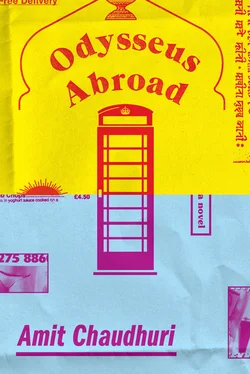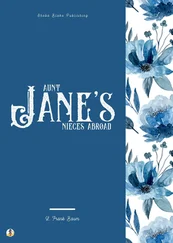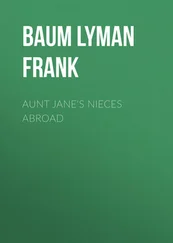—
Dr. Burton was a medievalist. She was an expert on Pearl and Sir Gawain and the Green Knight . The one reason that Ananda didn’t dismiss Dr. Burton’s preoccupations out of hand was because he’d read somewhere that Ted Hughes had been nourished by these strange consonantal poems — whose language was as harsh as the English winter. The recent English poets Ananda had read a great deal of: Larkin, Gunn, Hughes, Causley, Tomlinson. One of the reasons he’d gravitated towards this college — making the voyage out from Bombay, where the college had no separate meaning for him, unlike Oxford or Cambridge — was because Stephen Spender was here. When he applied for a place, he knew Spender had retired — only just — and, even today, this was a cause of heartbreak. Not so long ago, Spender hovered in these corridors, near these portals, until, coinciding with Ananda’s advent, he had withdrawn completely into late-night television shows, radio talks, and journal-publishing. If only Spender had frequented these corridors now, Ananda wouldn’t have been so unhappy. It was not so much his poems Ananda cared about — although he loved Hughes’s and Larkin’s work, Spender’s poetry hadn’t made an impression — as the appearance (slightly stooped; tweed-jacketed; with a blue-eyed angelic face, like David Gower’s) and the persona he’d encountered in World within World : sensitive, with a youth of mildly adventurous left-wing predilections, but a firm believer in poetry’s sacrosanct qualities (“I think continually of those who are great”). If only Spender had survived in the college to Ananda’s arrival, he would have recognised in him a kindred soul, a person moved invisibly by the poetic. Ananda would have hesitantly shown his poems to Spender, who, in his excitement, would have got them published, just as Spender’s friend Auden had once tremblingly, in astonishment, discovered the nineteen-year-old Dom Moraes’s poetry on a visit to Bombay, and been instrumental in its publication. That collection, as everyone knew, was the one book by an Indian to win the Hawthornden Prize, its author the youngest to have received that accolade. If Ananda had won the Hawthornden, he wouldn’t have been as young as Moraes, but young enough. Instead, he’d come to the college just a little too late. He recalled that Spender, in his memoir, had mentioned a teacher in his school, St. Paul’s, who’d said to him, “You’re unhappy in school, but you are going to be very happy at university.” Ananda had almost taken heart from this, because he too was miserable in school; but, unlike the youthful Stephen, he found he was very unhappy in university too. He didn’t mind. A part of him knew that he’d one day be happy. That state of being was firmly — and securely — reserved for full adulthood, when he’d probably be married and famous; just as, when he was a child, he’d concluded it was reserved for his late teens. To Hilary Burton, he hardly ever mentioned the contemporary poets. The only recent writer that she seemed halfway enthusiastic about was a woman called Julia Kristeva. “This is a wonderful book!” she’d said deeply, huskily, imparting a sensual emphasis to “wonderful,” as she lifted, from her populous, fusty bookshelf, a gleaming tome with a blue cover, Desire in Language . Again, sex seemed to be introduced into the frame of the tutorial, and he wasn’t sure if she was making a pass.
—
“The brightest students do medieval studies!” said Hilary Burton. “Oh, you mustn’t go to the moderns!” Towards the end of the previous academic year, he’d let it slip that, by the time he was a finalist, he wanted to take only nineteenth- and twentieth-century options; to be unshackled of the study of the past. The past is a foreign country; but another country’s past is twice-foreign. Was she hinting that she thought he was bright? Now that he was at a crossroads in life’s journey, already a traveller, was she confusing him by pointing out a route he didn’t intend to take? Brightest students! Was she inveigling him with disingenuous noises? By this time, her health — which had been appalling beneath her beautiful exterior and her gay fauvist dresses — had worsened, and she couldn’t see properly; so that when she stared at his collar while speaking, it was neither shyness nor flirtatiousness which made her do so, but simply the fact that she had a hazy sense now of where his face was. She’d been diagnosed with a problem in the brain — he had no idea what it was — a year ago. He wasn’t sure how much of the illness was real, how much a product of her imagination.
Medieval England didn’t attract him; not Gawain, not Piers Plowman . He felt he’d like Greek tragedy, but kept putting off the “intellectual background” classes where he could familiarise himself with Aeschylus and Sophocles. Besides, he was becoming suspicious of tragedy. He put this down to the rediscovery of his Indian past, his recent realisation that there was no tragedy in Sanskrit literature. Sanskrit theatre, with its tranquil curtain calls, where thief, courtesan, soldier, king, could smilingly take a bow, their conflicts resolved —that was a welcome antidote to the Western universe, with its privileging of dark over light. He was a proponent of joy! This, despite being drawn to Philip Larkin. He was plainly prejudiced against the West. Then what was he doing in the West, in the English department? He was clearly not at home; he was lost. He’d always presumed that Sophocles rhymed with “monocles.” Until, standing before a noticeboard announcing lectures, his mispronunciation was gently overlooked by a fellow student, an English boy, who repeated the name, rhyming it with Pericles. Ananda was embarrassed.
What of the epics, which they made such a fuss over? He’d gone to a lecture on the Aeneid one Monday morning, and puzzled over the lecturer’s caressing pronunciation— e-nee-yud ; but he — the lecturer — had droned on about the “founding myth of the nation,” and Ananda, in the back row, began to turn the pages of the Observer stealthily (two students glanced at him, smiling). What to make of these epics in comparison to the Ramayana and the Mahabharata, the latter (he was now convinced) equal to all of Shakespeare and more? — they were like a Thames to the Ganges, a stream beside a river with no noticeable horizon; minor. Homer he’d studied with similar scepticism, noting that the “rosy-fingered dawn” recurred without volition, like a traffic light, every few pages of the Iliad , and, with greater fascination — salivating, even, because he was often hungry — how the soldiers feasted on pork “singed in its own fat” at regular intervals. The Odyssey he hadn’t bothered to read.
Still, he’d read enough of and around the Greeks to know that the gods were undependable, and put their powers to use in idiosyncratic ways. In this, they were superficially like the many-headed, many-armed Hindu deities; except that, with the Hindu gods, you felt the capriciousness of their actions was linked to the transformative play of creation, lila . In comparison, the Greek gods were merely dim-witted and vengeful. They hibernated; they woke up; they became conscious of a problem; they either attended to it or forgot to. There was no telling which human being they’d help out or do their utmost to destroy — guided by some personal like or grudge that had no rational explanation, or, what was quite common, in order to redress a slight received aeons ago.
Ananda first met Dr. Burton on Gower Street. She was wearing a bright orange dress with large yellow circles which came to below her knees, and was tapping the pavement with a cane. He knew it was her. It was the first time that the person he wanted someone to be turned out to be whom he thought it was. “Mr. Sen!” she exclaimed, taking particular pleasure in the sound of his voice, as if it were a disembodied stream. “We have a meeting at ten, don’t we?” It was drizzling very lightly, despite the sun, and instinctively, opportunely, he took her under his umbrella. “Can you help me?” she asked. “I have a problem with my vision today.” He placed his arm on her shoulder, not daring to keep it there for more than a few seconds at a time, but feeling an unbelievable closeness that she too seemed to have surrendered to, almost patting her back as he steered her forward. From Gower Street they entered through a heavy glass door on the left and were in a long bleak corridor, from where — he escorting her, but she guiding him, as she knew the way — they ended up (he couldn’t remember how) in another building, and at last in her spacious room on the first floor, where the medievalists, Chaucerians, and linguistics professors had their offices.
Читать дальше











